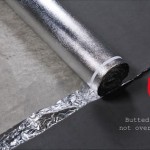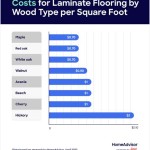Pecan Hardwood Flooring: Pros and Cons
Pecan hardwood flooring offers a unique aesthetic appeal and desirable performance characteristics, making it a popular choice for homeowners. However, like any flooring material, it comes with its own set of advantages and disadvantages. Understanding these can help consumers make informed decisions that align with their needs and budget.
Pros of Pecan Hardwood Flooring
Distinctive Appearance: Pecan boasts a rich, warm color palette, ranging from light browns and reddish hues to darker, more chocolatey tones. Its distinctive grain patterns, featuring a mix of straight and wavy lines, add visual interest and character to any space. The natural variations in color and grain create a unique floor, unlike mass-produced alternatives, enhancing the overall aesthetic of a room.
Durability: Pecan is a hardwood known for its strength and stability. It ranks favorably on the Janka hardness scale, indicating good resistance to dents, scratches, and everyday wear and tear. This durability makes pecan flooring a suitable option for high-traffic areas within the home.
Workability: Pecan wood is relatively easy to work with, making installation a smoother process for experienced professionals. This ease of milling and nailing contributes to efficient installation and potentially lower labor costs.
Stability: Pecan demonstrates good dimensional stability, meaning it is less susceptible to expanding and contracting with changes in temperature and humidity compared to some other wood species. This stability minimizes the risk of warping, cupping, and gapping over time, ensuring a longer-lasting and more visually appealing floor.
Finish Versatility: Pecan takes stains and finishes well, allowing for a wide range of customization options. Homeowners can choose from various stain colors to achieve their desired aesthetic, whether it's a natural look or a deeper, richer tone. This versatility allows pecan flooring to complement a variety of interior design styles.
Domestic Availability: As a North American species, pecan is readily available in the United States, reducing transportation costs and environmental impact compared to exotic imported wood species. This availability contributes to a more sustainable and often more affordable flooring option.
Resale Value: Hardwood floors, in general, are known to increase a home's resale value, and pecan's distinctive beauty and durability make it a particularly desirable feature for potential buyers. Investing in pecan flooring can be viewed as a long-term investment that enhances the overall value of a property.
Cons of Pecan Hardwood Flooring
Cost: Compared to some other hardwood species like oak or maple, pecan can be more expensive. Its unique aesthetic and desirable properties contribute to a higher price point, which may be a limiting factor for some homeowners.
Photosensitivity: Pecan wood is known to change color over time when exposed to sunlight. While some appreciate this natural aging process, others may find it undesirable. It's important to consider the room's orientation and sunlight exposure when choosing pecan flooring.
Maintenance: Like all hardwood floors, pecan requires regular maintenance to preserve its beauty and longevity. This includes sweeping or vacuuming to remove debris, occasional damp mopping, and the application of protective finishes as needed. Neglecting proper maintenance can lead to premature wear and damage.
Susceptibility to Scratches: While pecan exhibits good hardness, it is still susceptible to scratches from pets, furniture, and high heels. Protective measures, such as furniture pads and area rugs, are recommended to minimize the risk of surface damage.
Water Sensitivity: Pecan, like all wood flooring, is susceptible to water damage. Spills should be cleaned up promptly to prevent staining and warping. It's generally not recommended to install pecan flooring in areas prone to moisture, such as bathrooms or basements.
Variations in Color and Grain: While the natural variations in pecan's color and grain are often considered a positive attribute, they can also make it challenging to achieve a perfectly uniform look across a large area. Careful planning and selection of boards are necessary to minimize noticeable differences.
Installation Complexity: Although pecan is considered relatively easy to work with, proper installation requires the expertise of a skilled professional. Incorrect installation can lead to problems such as squeaking, gapping, and unevenness. Hiring a qualified installer is essential to ensure a successful and long-lasting result.

Walnut Vs Pecan Woodwright

Walnut Vs Pecan Woodwright

Guide To Hardwood Types Styles Koeber S Interiors

How To Pick The Perfect Hardwood Floor Stain Color

Anderson Tuftex Engineered Wood Flooring Fabricio Hardwood Floors Inc

Walnut Vs Pecan Woodwright

Top Wood Flooring Trends In 2024 Charlotte Nc

The Diffe Types Of Hardwood Flooring Which Is Right For You

Hardwood Flooring Pros And Cons Cost Best Brands Where To Buy

7 Rustic Wood Flooring Design Ideas For Your Home 2025 Today S Homeowner
Related Posts








